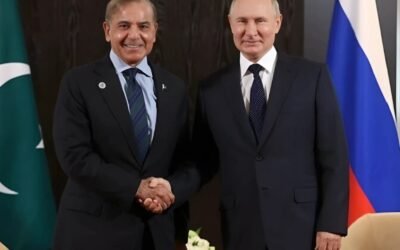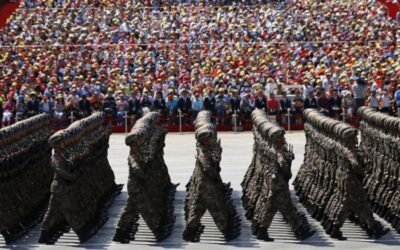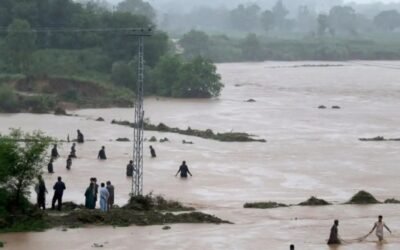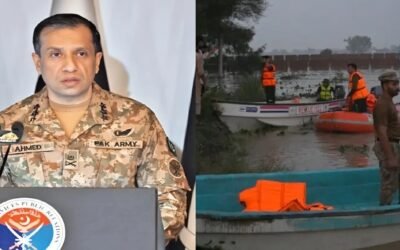The US designation of the BLA, currently known as Fitna-al Hindustan (FAH), and the Majeed Brigade as a terrorist outfit. It is a major diplomatic setback for India’s long-running campaign on Balochistan. New Delhi has historically portrayed Baloch separatists as victims of Pakistani repression, a narrative it spread in Western capitals and media. But by explicitly labeling the FAH a terrorist group, Washington undercuts the very premise that the militants are “freedom fighters.” Instead, the US joins Pakistan in framing the FAH as violent proxies. In effect, India’s strategy of highlighting human rights in Balochistan has been discredited by a U-turn in American policy.
Pakistani Evidence Against RAW
Islamabad has long gathered proof of India’s role in destabilizing Pakistan. The most damaging case was the arrest of Kulbhushan Jadhav, an Indian naval officer working under a false name. He confessed to directing operations in Balochistan and Karachi for RAW. He admitted that RAW funded Baloch militants. The money was used for sabotage, targeted killings, and attacks on infrastructure. Jadhav said the goal was to cripple economic projects and spread chaos. He named Gwadar and other ports as the main targets. These areas are vital for trade and CPEC. His statement was backed by forensic and intelligence evidence. Pakistan called it irrefutable proof of India’s hand in terrorism. The confession destroyed India’s claims of non-interference. It showed New Delhi’s clear sponsorship of violence. For Pakistan, the case proved that India is not defending human rights in Balochistan. It is creating unrest to weaken Pakistan from within.

Source: Business Recorder
Other disclosures deepen the case. In 2020, Pakistan took a dossier to the UN, as reported by Al Jazeera. The papers alleged India’s state sponsorship of terrorism. They included meetings, audio clips, and bank transfers linking New Delhi to Baloch groups. Pakistani intelligence says RAW mobilized proxy networks across Balochistan. These groups were given orders to target Gwadar, Quetta, and Khuzdar. Even Afghan militants were said to have been deployed. Repeated by officials and media, these revelations portray India as covertly funding and arming the FAH.
You May Like To Read: The Indus Waters Treaty: A Lifeline for a Young Nation
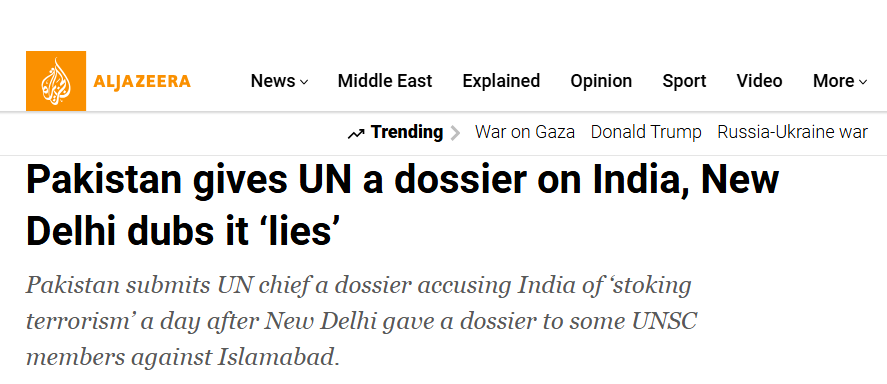
Source: Al Jazeera
Collapse of India’s Narrative
India tried to turn Balochistan into an international human rights case. Delhi accused Pakistani forces of enforced disappearances and alleged abuses. It lobbied Western think tanks to push a pro-Baloch narrative. It backed online misinformation campaigns. It promoted sympathetic media coverage. But the US terror designation for the FAH shattered this strategy. By labeling the FAH as violent extremists and a terrorist organization, Washington dismissed the image of them as peaceful activists. The move aligned with Pakistan’s stance. It made Bashir Zeb, the FAH leader, an officially listed terrorist, not a persecuted dissident. This undercut India’s arguments on Baloch “rights” in the UN and Western media. The Washington Post noted the shift. US officials now share Pakistan’s security view of the insurgents. They no longer see the conflict mainly as a rights issue. This collapse of India’s narrative has narrowed its diplomatic space.
India’s reaction has been muted. The foreign ministry rejected Pakistan’s charges outright. It called them baseless. It described Islamabad’s evidence as a “dossier of lies” with “zero credibility”. Yet the sudden US policy shift strengthens Pakistan’s case both at the national and international levels. Western headlines now call the FAH a terrorist group, not a human rights movement. The US designation of the FAH as a terrorist group boosts Pakistan’s position. It puts India in a difficult diplomatic spot. Baloch leaders have backed India’s stance on key issues. They have urged New Delhi to support their cause and link it to Pakistan-occupied Jammu and Kashmir. Washington’s move changes the FAH’s image from a local insurgency to a global security threat. This makes it harder for India to defend or engage with the group’s narrative. Doing so could make it appear inconsistent or hypocritical. The shift strengthens Pakistan’s case. It may also pressure India to list the FAH as a terrorist group, creating serious diplomatic challenges.
You May Like To Read: U.S., China Extend Tariff Truce for 90 Days
Reputational Damage for India
In Washington and other Western capitals, the terror designation brings political heat on India. Lawmakers who once praised India’s democratic image may now suspect ties to extremist actors. The shift in narrative has also weakened India’s standing in South Asian policy debates. Pakistan can now cite American policy to counter any Western criticism of its actions in Balochistan. This is no small advantage. A Pakistan-based security analyst said the FTO listing highlights the growing role of military diplomacy and shows the US “values stability in Pakistan.” The implication is clear. India’s credibility suffers. The framing of India as a responsible regional player is harder to sustain. Its earlier push to define Balochistan as a human rights issue now meets an American position that treats the main armed group there as terrorists.
India’s proxy warfare strategy faces a public setback. The inclusion of the FAH on the US terror list suggests that the Baloch gambit, once a pressure point against Pakistan, no longer delivers returns. Pakistan’s claims of RAW’s role, from the Jadhav confession to documented financial transfers, now gain weight through Washington’s stance. For India, this is not just about losing an argument; it is about losing a tool of influence. With US policy now aligned with Pakistan’s framing, India’s moral argument on Balochistan has weakened sharply. New Delhi is left to play defense in both international media and diplomatic arenas, a reversal it did not anticipate.
Conclusion
Washington’s designation of the FAH as terrorists confirms Pakistan’s long-held claims of Indian interference. It strengthens Pakistan’s counterargument. Even the US now considers these fighters as extremists. For India, this move damages its reputation internationally. It also exposes the limits of its covert strategy. The fall of India’s Baloch narrative shifts the debate. The issue is now framed as counterterrorism, which benefits Pakistan. In this conflict of narratives, Pakistan gains a victory. US policy now aligns with Islamabad’s stance. The militants are now isolated. India’s proxy network is weakened. On the global stage, its strategy suffers a setback. The path forward will be more difficult for New Delhi. Defending its previous position will be tough when a close ally labels the FAH as a terrorist group.


